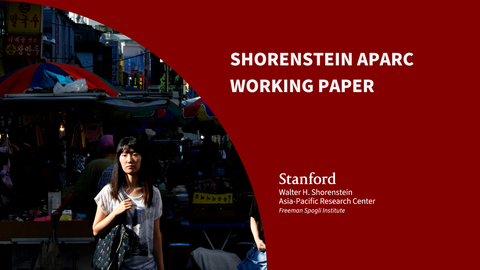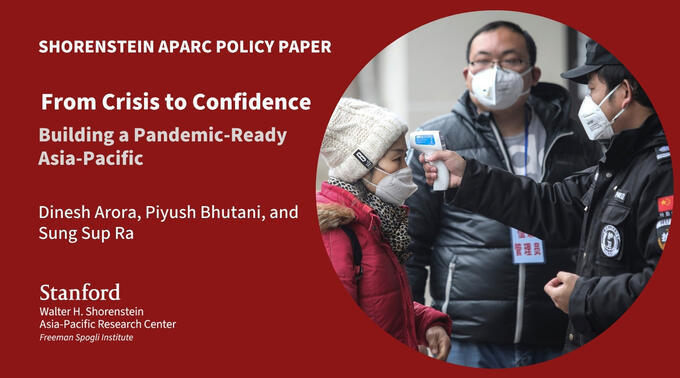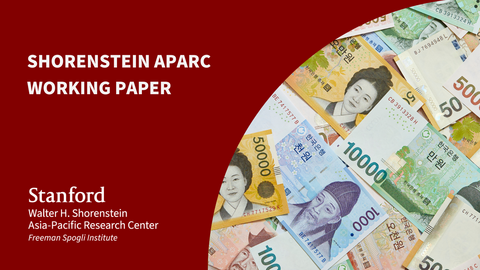To understand the transformation of Korean food from an “ethnic curiosity” into one of the world’s hottest cuisines, the Korea Program at Shorenstein APARC brought together culinary experts and academics at the conference “Korean Cuisine Gone Global.” Held on April 11, 2024, the scholars offered insights into the transformation of Korean cuisine, the role of race and place in its success story, and new directions in studying food and Korean culture. Their papers are collected in this volume.
The conference also featured celebrity chef Judy Joo, a renowned television star, an international restaurateur, and owner of the famed Seoul Bird, and Ryu Soo-young, an acclaimed actor turned culinary maestro.
About the Contributors
Rebecca Jo Kinney is an interdisciplinary teacher and scholar of American Studies and Ethnic Studies, and an associate professor at the School of Cultural Studies at Bowling Green State University. Kinney’s award-winning first book, Beautiful Wasteland: The Rise of Detroit as America’s Postindustrial Frontier (University of Minnesota Press, 2016), argues that contemporary stories told about Detroit’s potential for rise enable the erasure of white supremacist systems. Her research has appeared in American Quarterly, Food, Culture & Society, Verge: Studies in Global Asia, Radical History Review, and Race&Class, among other journals. Her second book, Mapping AsiaTown Cleveland: Race and Redevelopment in the Rust Belt, is forthcoming from Temple University Press in 2025. She is working on a third book, Making Home in Korea: The Transnational Lives of Adult Korean Adoptees, based on research undertaken while a Fulbright Scholar in South Korea.
Robert Ji-Song Ku is an associate professor of Asian and Asian American Studies at Binghamton University (SUNY) and the managing editor of Foundations and Futures: Asian American and Pacific Islander Multimedia Textbook of the Asian American Studies Center at UCLA. His teaching and research interests include Asian American studies, food studies, and transnational and diasporic Korean popular culture. Prior to Binghamton, he taught at Cal Poly, San Luis Obispo, and Hunter College (CUNY). He is the author of Dubious Gastronomy: Eating Asian in the USA (University of Hawai‘i Press, 2014) and co-editor of Eating More Asian America: A Food Studies Reader (NYU Press, forthcoming 2025), the sequel to Eating Asian America (NYU Press, 2013). He is also co-editor of Pop Empires: Transnational and Diasporic Flows of India and Korea (University of Hawai‘i Press, 2019) and Future Yet to Come: Sociotechnical Imaginaries in Modern Korea (University of Hawai‘i Press, 2021), as well as the Food in Asia and the Pacific series for the University of Hawai‘i Press. Born in Korea, he grew up in Hawai‘i and currently lives in Culver City, California.
Jooyeon Rhee is an associate professor of Asian Studies and Comparative Literature and director of the Penn State Institute for Korean Studies. She specializes in modern Korean literature and culture. Her main research concerns Korean popular literature, with particular emphasis on transnational literary exchanges and interactions. Currently, she is writing her second book on cultural imaginations of crime and deviance manifested in late colonial Korean detective fiction. Her other research interests include diasporic art and literature and food studies.
Dafna Zur (editor) is an associate professor of Korean literature and culture in the Department of East Asian Languages and Cultures and director of the Center for East Asian Studies at Stanford. Her first book, Figuring Korean Futures: Children’s Literature in Modern Korea (2017), interrogates the contradictory political visions made possible by children’s literature in colonial and postcolonial Korea. Her second project explores sound, science, and space in the children’s literature of North and South Korea. She has published articles on North Korean popular science and science fiction, translations in North Korean literature, the Korean War in children’s literature, childhood in cinema, children’s poetry and music, and popular culture. Zur’s translations of Korean fiction have appeared in wordwithoutborders.org, Modern Korean Fiction : An Anthology, and the Asia Literary Review.









